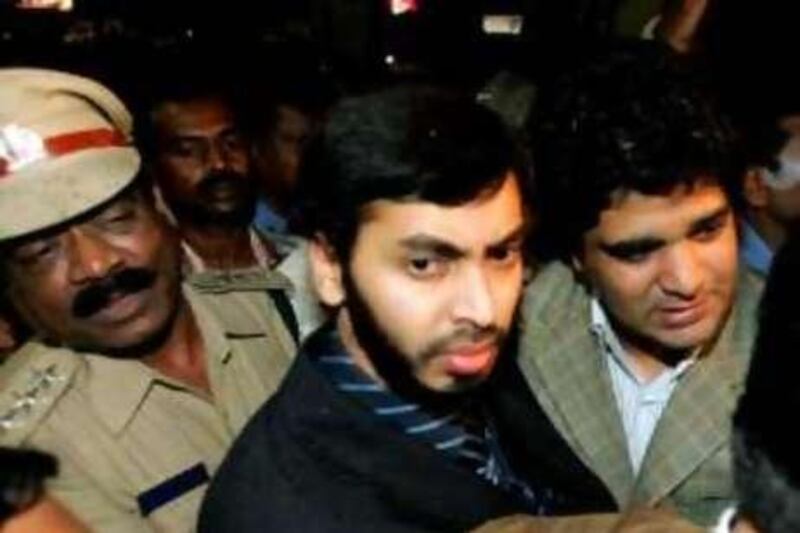ABU DHABI // A doctor in the UAE is suing the Australian government and its former immigration minister after he was wrongfully arrested in connection with planned terrorist attacks in Britain. Dr Mohammed Haneef was held at Brisbane airport in July 2007, a few days after attempted bombings in London and Glasgow. He was in custody for 12 days before being charged with recklessly giving support to a terrorist organisation. The charges were dropped and he was released on July 27.
In 2008 Dr Haneef moved with his wife and daughter, now aged 3, to the UAE, where he practises as a GP. Now his lawyers in Brisbane have lodged a claim for defamation in the Queensland Supreme Court against Kevin Andrews, the former minister for immigration and citizenship, and a second claim against the Australian government for unlawful arrest and misfeasance in public office. Indian-born Dr Haneef, 30, said his career had been irreparably damaged and he was concerned for the financial wellbeing of his family. "It has been a huge blow to my reputation and career," he said. "Both my family and myself have suffered because of this incident. We have all suffered huge traumas since this event." He added: "I am completely off track in my career. I was on track to become a specialist physician and now I am working as a general practitioner." Dr Haneef said the decision to take the Australian government to court had been difficult. "It was not an easy decision to make, but there has been a big financial loss and a lot of damage to my reputation," he said. "Hopefully this will make some difference. It has been very difficult for me and my family. There are a lot of expatriates here, and a lot of Indians, and they all recognise me." He added that he had no plans to leave the UAE. An official inquiry into Dr Haneef's arrest and subsequent release acknowledged his innocence, and said a number of errors were made during his case. His lawyer, Rod Hodgson, said this week that the legal foundations for both claims were solid and Dr Haneef should be compensated for his lost earnings and damaged reputation. He said he hoped the cases could be resolved out of court, but was prepared to advance to the courts if necessary. Mr Andrews, the former minister, had "made a number of statements about Dr Haneef which suggested or implied that our client was a terrorist", Mr Hodgson claimed. "This government" he said, "should recognise that it is something that ought to be put behind us. That would involve more than simply saying 'we got it wrong'. His reputation was trashed and his career impacted, and all that translates to substantial sums of money, not just a few dollars." The original case against Dr Haneef centred around a mobile phone SIM card that he gave to his second cousin, Dr Sabeel Ahmed, in the summer of 2006, when he was living and working in the UK. Sabeel and his brother Kafeel Ahmed were both involved in the planned car bomb attacks on London and the Glasgow airport. Sabeel pleaded guilty to withholding information about the planned attacks and was sentenced in April 2008 to 18 months in jail. Kafeel Ahmed suffered 90-degree burns after the attack on the Glasgow airport and later died in hospital. The Hon John Clarke QC wrote in the official report into Dr Mohammed Haneef's case that he could find "no evidence" that the doctor was "associated with or had foreknowledge of the terrorist events or of the possible involvement of his second cousins Dr Sabeel Ahmed and Mr Kafeel Ahmed in terrorist activities." He also said there was no evidence that Dr Haneef knew he was giving the SIM card to a terrorist organisation or "knew facts that would have demonstrated that he was reckless in giving his SIM card to Sabeel". Mr Hodgson said the new proceedings could take a couple of years to complete. "If the government comes to the table with good faith, then great, we will keep talking," he said. "If the government plays lip service to bona fide negotiations we will have to activate the court proceedings." munderwood@thenational.ae






